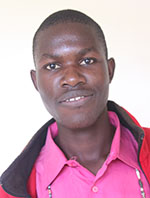By Calvince Owiti
I was born about two decades ago in a small village in Western parts of Kenya. I grew up in a humble background, learning all that was relevant that time. My grandparents were herbal medical practitioners. I lived with them most of my early life even though my parents were still alive. My grandfather kept on calling me ‘ajuoga’(meaning doctor). Before he became a herbalist, he had been to a seminary where he was training as a father but left before finishing for a driving job in Tanzania. He could urge me every morning to study hard in class to become a modern doctor. They could treat all conditions, including malaria, curses as well as a number of obstetric/gynecological conditions. However; there was one practice that kept me wondering…
At that time, the level of sanitation in the village was totally messy. There was neither clean water nor the knowledge about water treatment. Pit latrines or toilets were a non-issue in most households. Once or twice in a week people would come to them (grandparents) with complaints of epigastric pain, fever, nausea and vomiting. A diagnosis of ‘collapsed heart’ would be quickly made and treatment instituted immediately (that’s the literal translation of what I heard in Luo dialect). Typically, treatment involved giving some concoctions, leaching on the epigastic region followed by planting a bean seed under a water pot. The germination of the seed would mark the restoration of the heart to its normal position. Failure to germinate was bad news. Temporary relief of pain was provided but people could still complain of the same symptoms two to three weeks later. I became curious to know what this disease was. It kept me going and eventually prompted my desire to pursue medicine.
After studying about GIT pathology and pharmacology, I came to realize that the monster in my village was Peptic ulcer disease (PUD). Anytime I go back to the village for holidays I receive similar complaints from friends and relatives. I have since referred more than 10 people for lab investigations in the local facilities and in all cases, Helicobacter pylori has been positive. After triple therapy consisting of amoxicillin, metronidazole and omeprazole, NONE complained of the symptoms after two months. I still believe there are many people suffering from this out there but they can’t seek medical attention due to lack of awareness. With expansion of health care in Kenya, a lot has improved and health facilities are now nearer in most areas in western Kenya. The only challenge is lack of awareness.
I owe special thanks to Project Harambee for taking us this far.

Calvince Owiti is a third-year medical student at Kenyatta University in Kenya. He is sponsored by Project Harambee’s “Plant A Seed, Grow A Doc” program. For more information on Project Harambee, visit www.projectharambee.org
You are bringing your critical curiosity and compassionate caring to make a difference in this world Calvince Owiti. Good luck with your medical studies- you are well on your way to being a fine ajuoga, just as your grandfather has encouraged with faith in you. Tx for sharing some of your story with us.
LikeLike
It’s the best time to make a few plans for the future and it is time to be happy.
I’ve learn this post and if I may just I want to suggest you few attention-grabbing issues or suggestions.
Perhaps you can write subsequent articles regarding
this article. I desire to learn even more issues approximately it!
LikeLike
Nice piece of work Ajuoga. Good impact there.
LikeLike